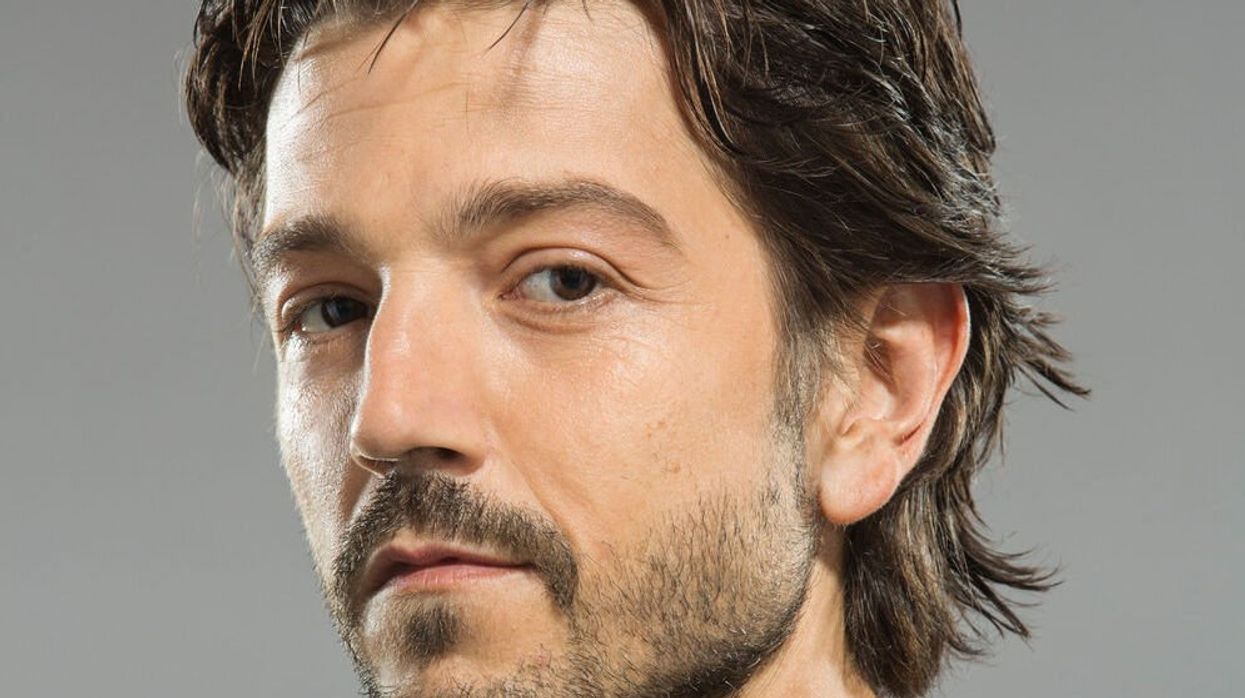Diego Luna Shares What a Pandemic and Guillermo del Toro Taught Him About Filmmaking
In a talk hosted by the We Are One Global Film Festival, Diego Luna shared what living in isolation has taught him about filmmaking, plus some brutally honest feedback Guillermo del Toro gave him on one of his films.

Being in quarantine has tested Diego Luna’s resolve, but it’s also showed him what the film industry has been sorely missing.
That’s what the Mexican actor, director, and producer told Estrella Araiza, General Director of the Guadalajara Film Festival, in a panel hosted by the We Are One Global Film Festival.
“I’m depressed because of what we’ve lost,” Luna said. “I don’t [know] when we’ll be able to sit in a cinema, share the experience of watching a film, and become part of a community. It makes sense that we’re afraid of what’s to come. But we can’t allow that to paralyze us. Fear can be used for good—it can move us. And there’s a lot we can do in this new normal.”
The biggest change he wants to see come out of the “new normal”? Greater investment in developing projects.
Most of Luna’s work in the director’s chair—including his 2014 biopic, Cesar Chavez,and his 2016 dramedy, Mr. Pig—has been done on Mexican soil. Even before the onset of the COVID-19 pandemic, he observed that the development phase of the process was often neglected by the country’s financiers.
“In Mexico, most, if not all, of the money comes from tax funds and the state and [goes toward] shooting,” Luna explained. “Once you start a project, you shoot it. You won’t be able to make money, hire people, or survive making movies if you’re not shooting a movie. So, everyone hopes to be out shooting something as fast as possible. There aren’t many companies that can afford to have five to 10 projects in development and work rigorously to find out if a movie even has to be made or not. We don’t think enough about why we’re doing what we’re doing.”
Now that filmmakers aren’t able to go out and shoot their projects, Luna hopes that they’ll reevaluate how much time they spend writing and re-writing them. “That’s what we should be doing after the pandemic—being meticulous in the way we approach development,” he said.
Recent life experiences haven’t been Luna’s only filmmaking teacher. He shared that he often looks to Alfonso Cuarón, Guillermo del Toro, and Alejandro González Iñárritu for honest, and occasionally brutal, feedback on his films.
“They’re very generous, and they always have time to sit down and destroy your film,” Luna joked of the “Three Amigos” of Mexican cinema. “They’re rigorous with their method and they confront you with every decision you make. They ask the right questions. They’re very different in terms of where they come from, but they’ve always been there for me. The three of them are my editors, doctors, shrinks, and everything else.”
Luna recalls one of del Toro’s takes on his work as being especially blunt. “He said, ‘Well, the film is great… and would work perfectly with a different actor. I was like, ‘What?!’ We call it ‘carilla’in Mexico—bad teasing. It’s a national sport, and Guillermo and Alfonso are the best carilludos you can find.”
Asked for his forecast on the future of filmmaking and filmgoing, Luna said he senses a need among audiences for cinema that reflects on these extraordinary times. But he still believes that filmmakers need to draw from what’s deeply personal more than anything else.
“I’ve never worked without having the necessity to almost vomit something out,” he said. “Films have come from important moments in my life. It’s been the best therapy—not just for me, but as a tool to communicate with the people I love. To tell my father what I never said… to make sure my kid knows what kind of father I don’t want to become. Making films has become necessary for me and I don’t see why I’d stop that process.”
Watch the whole video here:
We Are One Global Film Festival runs from May 29-June 7, 2020. The free online festival includes programming from Berlin International Film Festival, BFI London Film Festival, Cannes Film Festival, Sundance Film Festival, Toronto International Film Festival, Tribeca Film Festival, Venice Film Festival, and more. For more details, visit the festival's information page.










![Ethos, Pathos, Logos: 20 Effective Ways to Advertise [Infographic]](https://nofilmschool.com/media-library/ethos-pathos-logos-20-effective-ways-to-advertise-infographic.jpg?id=34064614&width=600&height=600&quality=90&coordinates=560%2C0%2C0%2C0)

